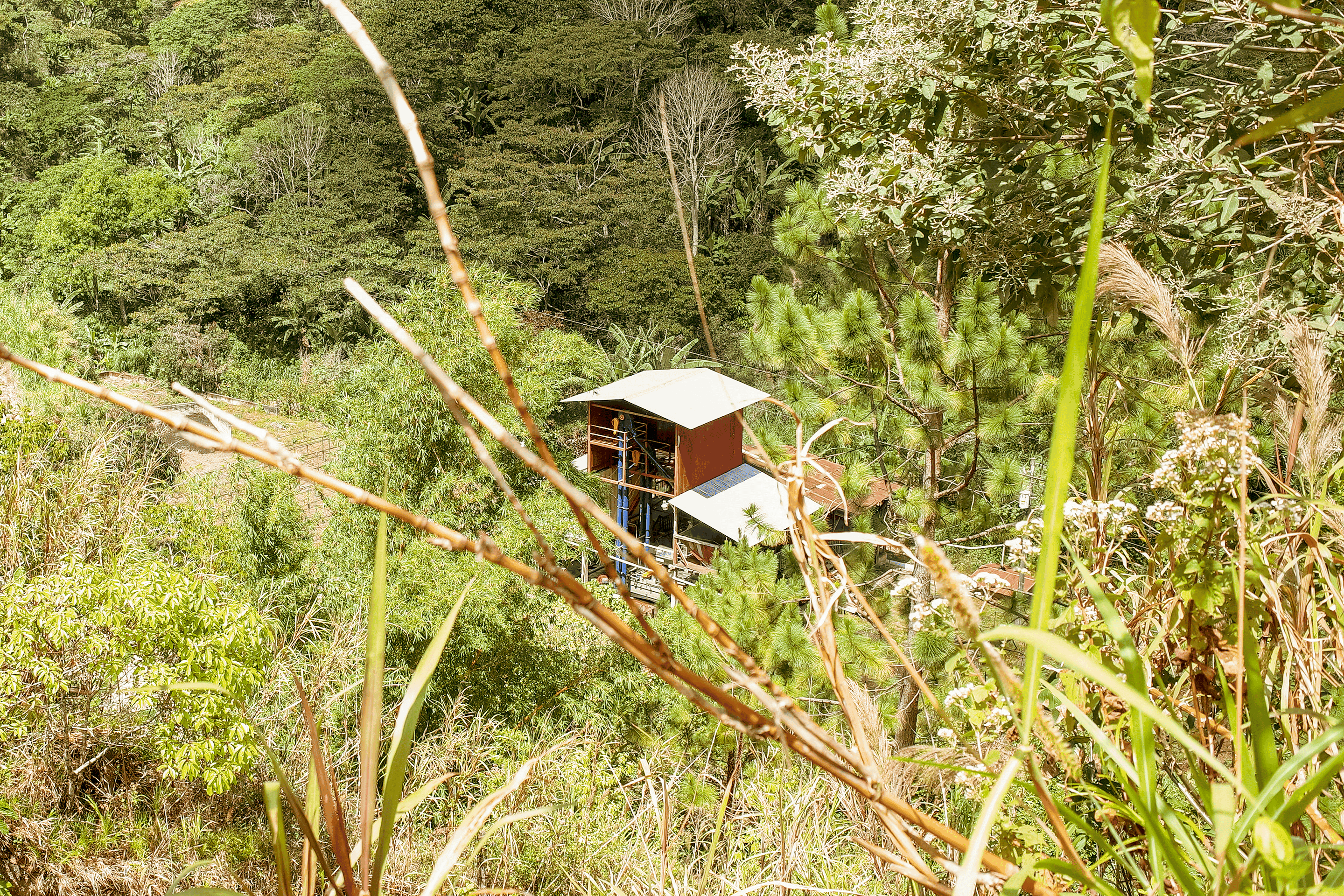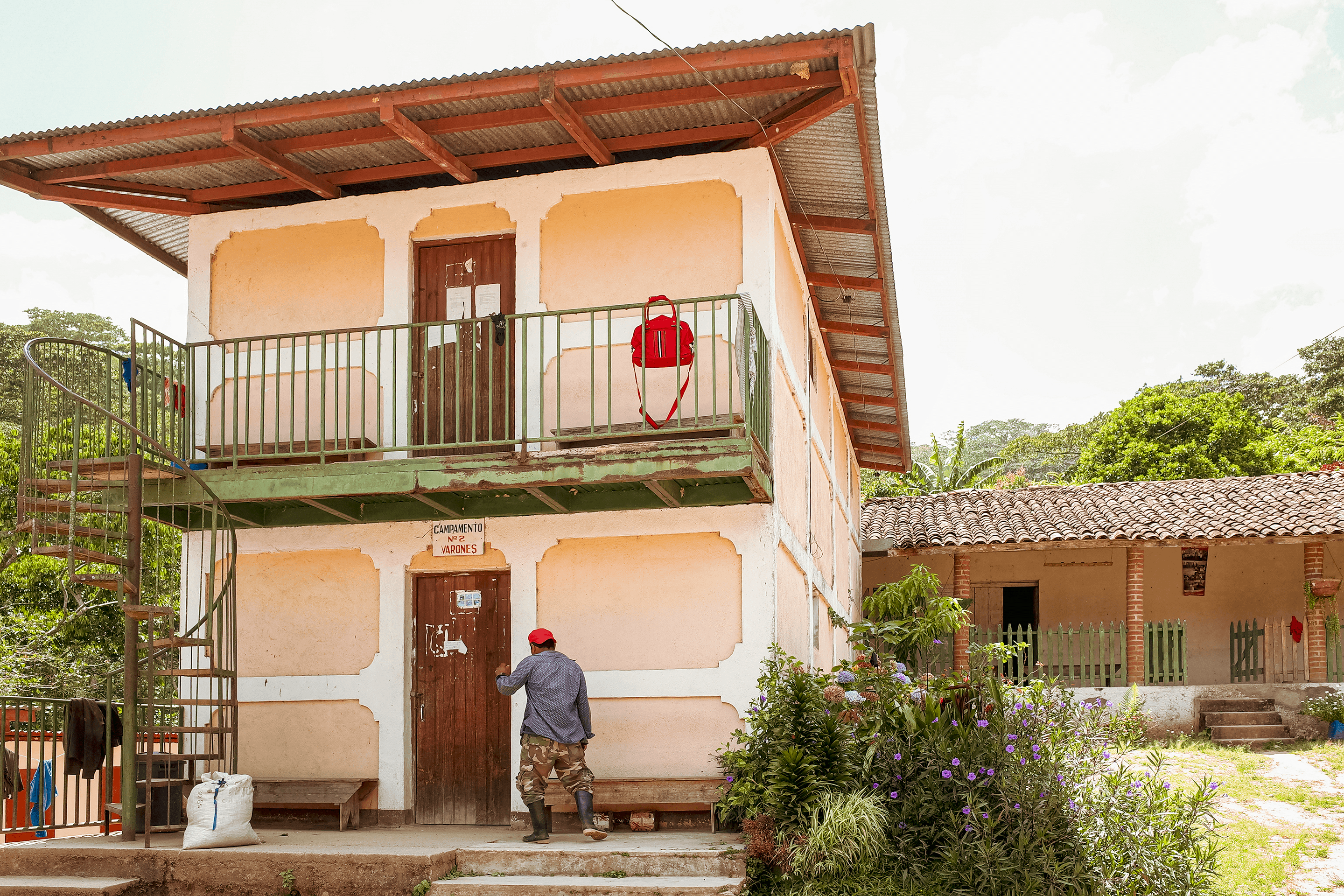In Transit
Peralta 2023/24
Producer/Curator:
Julio Peralta
Peralta Coffee is one of Nicaragua’s leading producers and exporters of specialty coffee. Their consistent quality is highly valued by buyers around the world and its distribution volume exceeds 50 containers per year. Peralta Coffee is run by the Peralta family, Julio and Octavio who are cousins. They own seven…Read More
1,233roasters are interested
107roasters purchased
Sample Request :
2024/7/5 10:00:00 Start
2024/7/23 10:00:00 End
Pre-oder :
2024/7/15 10:00:00 Start
2024/7/24 15:00:00 End
Price
8.49 USDFOB/kg
Quantity
0/0 bags (30kg)
Samples
Out of Stock
-
Price
8.49 USDFOB/kg
Quantity
0/0 bags (30kg)
Samples
Out of Stock
-
Price
9.92 USDFOB/kg
Quantity
0/0 bags (30kg)
Samples
Out of Stock
-
Price
9.37 USDFOB/kg
Quantity
0/0 bags (30kg)
Samples
Out of Stock
-
Price
10.69 USDFOB/kg
Quantity
0/0 bags (30kg)
Samples
Out of Stock
-
Price
33.47 USDFOB/kg
Quantity
0/0 bags (30kg)
Samples
Out of Stock
-
Price
6.83 USDFOB/kg
Quantity
0/0 bags (30kg)
Samples
Out of Stock
-
Price
9.04 USDFOB/kg
Quantity
0/0 bags (30kg)
Samples
Out of Stock
-
Price
9.59 USDFOB/kg
Quantity
0/0 bags (30kg)
Samples
Out of Stock
-
Price
9.59 USDFOB/kg
Quantity
0/0 bags (30kg)
Samples
Out of Stock
-
Price
9.59 USDFOB/kg
Quantity
0/0 bags (30kg)
Samples
Out of Stock
-
Price
9.59 USDFOB/kg
Quantity
0/0 bags (30kg)
Samples
Out of Stock
-
Warehoused
Peralta 2022/23
Producer/Curator:
Julio Peralta
Peralta Coffee is one of Nicaragua’s leading producers and exporters of specialty coffee. Their consistent quality is highly valued by buyers around the world and its distribution volume exceeds 50 containers per year. Peralta Coffee is run by the Peralta family, Julio and Octavio who are cousins. They own seven…Read More
1,233roasters are interested
107roasters purchased
Sample Request :
2023/5/24 10:00:00 Start
2023/6/9 10:00:00 End
Pre-oder :
2023/5/30 10:00:00 Start
2023/6/12 10:00:00 End
Price
8.27 USDFOB/kg
Quantity
0/0 bags (34kg)
Samples
Out of Stock
-
Price
9.04 USDFOB/kg
Quantity
0/0 bags (34kg)
Samples
Out of Stock
-
Price
9.04 USDFOB/kg
Quantity
0/0 bags (34kg)
Samples
Out of Stock
-
Price
10.58 USDFOB/kg
Quantity
0/0 bags (34kg)
Samples
Out of Stock
-
Price
10.8 USDFOB/kg
Quantity
0/0 bags (34kg)
Samples
Out of Stock
-
Price
8.27 USDFOB/kg
Quantity
0/0 bags (34kg)
Samples
Out of Stock
-
Price
8.6 USDFOB/kg
Quantity
0/0 bags (34kg)
Samples
Out of Stock
-
Price
9.37 USDFOB/kg
Quantity
0/0 bags (34kg)
Samples
Out of Stock
-
Warehoused
NI-2023-009
Price
10.14 USDFOB/kg
Quantity
0/0 bags (34kg)
Samples
Out of Stock
-
Price
10.58 USDFOB/kg
Quantity
0/0 bags (34kg)
Samples
Out of Stock
-
Price
10.58 USDFOB/kg
Quantity
0/0 bags (34kg)
Samples
Out of Stock
-
Price
22.05 USDFOB/kg
Quantity
0/0 bags (34kg)
Samples
Out of Stock
-
Price
8.27 USDFOB/kg
Quantity
0/0 bags (34kg)
Samples
Out of Stock
-
Price
8.27 USDFOB/kg
Quantity
0/0 bags (34kg)
Samples
Out of Stock
-
Price
9.37 USDFOB/kg
Quantity
0/0 bags (34kg)
Samples
Out of Stock
-
Price
9.26 USDFOB/kg
Quantity
0/0 bags (34kg)
Samples
Out of Stock
-
Price
11.02 USDFOB/kg
Quantity
0/0 bags (34kg)
Samples
Out of Stock
-
Price
8.27 USDFOB/kg
Quantity
0/0 bags (34kg)
Samples
Out of Stock
-
Price
9.04 USDFOB/kg
Quantity
0/0 bags (34kg)
Samples
Out of Stock
-
Price
10.58 USDFOB/kg
Quantity
0/0 bags (34kg)
Samples
Out of Stock
-
Price
8.27 USDFOB/kg
Quantity
0/0 bags (34kg)
Samples
Out of Stock
-
Price
11.02 USDFOB/kg
Quantity
0/0 bags (34kg)
Samples
Out of Stock
-
Price
9.37 USDFOB/kg
Quantity
0/0 bags (34kg)
Samples
Out of Stock
-
Warehoused
Peralta Coffees 2020/21
Producer/Curator:
Julio Peralta
Peralta Coffee is one of Nicaragua’s leading producers and exporters of specialty coffee. Their consistent quality is highly valued by buyers around the world and its distribution volume exceeds 50 containers per year. Peralta Coffee is run by the Peralta family, Julio and Octavio who are cousins. They own seven…Read More
1,233roasters are interested
107roasters purchased
Sample Request :
2021/5/2 00:00:00 Start
2021/5/12 00:00:00 End
Pre-oder :
2021/5/2 00:00:00 Start
2021/5/12 00:00:00 End
Price
8.8 USDFOB/kg
Quantity
0/0 bags (69kg)
Samples
Out of Stock
-
Price
8.4 USDFOB/kg
Quantity
0/0 bags (69kg)
Samples
Out of Stock
-
Price
9 USDFOB/kg
Quantity
0/0 bags (69kg)
Samples
Out of Stock
-
Price
8.8 USDFOB/kg
Quantity
0/0 bags (69kg)
Samples
Out of Stock
-
Price
8.8 USDFOB/kg
Quantity
0/0 bags (69kg)
Samples
Out of Stock
-
Price
8.8 USDFOB/kg
Quantity
0/0 bags (69kg)
Samples
Out of Stock
-
Price
8.8 USDFOB/kg
Quantity
0/0 bags (69kg)
Samples
Out of Stock
-
Price
8.8 USDFOB/kg
Quantity
0/0 bags (69kg)
Samples
Out of Stock
-
Price
9 USDFOB/kg
Quantity
0/0 bags (69kg)
Samples
Out of Stock
-
Price
8.8 USDFOB/kg
Quantity
0/0 bags (69kg)
Samples
Out of Stock
-
Price
8.2 USDFOB/kg
Quantity
0/0 bags (69kg)
Samples
Out of Stock
-
Price
8.4 USDFOB/kg
Quantity
0/0 bags (69kg)
Samples
Out of Stock
-
Price
8.8 USDFOB/kg
Quantity
0/0 bags (69kg)
Samples
Out of Stock
-
Price
8.8 USDFOB/kg
Quantity
0/0 bags (69kg)
Samples
Out of Stock
-
Price
8.4 USDFOB/kg
Quantity
0/0 bags (69kg)
Samples
Out of Stock
-
Price
8.8 USDFOB/kg
Quantity
0/0 bags (69kg)
Samples
Out of Stock
-
Price
8.4 USDFOB/kg
Quantity
0/0 bags (69kg)
Samples
Out of Stock
-
Price
8.4 USDFOB/kg
Quantity
0/0 bags (69kg)
Samples
Out of Stock
-
Price
8.4 USDFOB/kg
Quantity
0/0 bags (69kg)
Samples
Out of Stock
-
Price
9 USDFOB/kg
Quantity
0/0 bags (69kg)
Samples
Out of Stock
-
Price
8.2 USDFOB/kg
Quantity
0/0 bags (69kg)
Samples
Out of Stock
-
Price
8.2 USDFOB/kg
Quantity
0/0 bags (69kg)
Samples
Out of Stock
-
Price
8.8 USDFOB/kg
Quantity
0/0 bags (69kg)
Samples
Out of Stock
-
Price
8.8 USDFOB/kg
Quantity
0/0 bags (69kg)
Samples
Out of Stock
-
Price
9 USDFOB/kg
Quantity
0/0 bags (69kg)
Samples
Out of Stock
-
Price
8.4 USDFOB/kg
Quantity
0/0 bags (69kg)
Samples
Out of Stock
-
Price
8.2 USDFOB/kg
Quantity
0/0 bags (69kg)
Samples
Out of Stock
-
Price
8.8 USDFOB/kg
Quantity
0/0 bags (69kg)
Samples
Out of Stock
-
Price
9 USDFOB/kg
Quantity
0/0 bags (69kg)
Samples
Out of Stock
-
Price
8.8 USDFOB/kg
Quantity
0/0 bags (69kg)
Samples
Out of Stock
-
Price
9 USDFOB/kg
Quantity
0/0 bags (69kg)
Samples
Out of Stock
-
Price
8.8 USDFOB/kg
Quantity
0/0 bags (69kg)
Samples
Out of Stock
-
Price
8.8 USDFOB/kg
Quantity
0/0 bags (69kg)
Samples
Out of Stock
-
Price
8.4 USDFOB/kg
Quantity
0/0 bags (69kg)
Samples
Out of Stock
-

Nicaragua, Central America's largest country by area, is home to about 6.5 million people. Its diverse landscape encompasses volcanoes, lakes, rainforests, the Caribbean Sea, and coastlines along the Pacific Ocean. Agriculture and livestock form the backbone of Nicaragua's economy, with coffee being one of its primary industries, alongside cigars, sugarcane, and beef. Vast tobacco fields stretch alongside roads leading to coffee-producing regions. Nicaragua ranks as the second poorest country in Central America after Haiti, a status inextricably linked to its history of civil war. In 1979, leftist forces, inspired by the Cuban Revolution, successfully overthrew the government in what became known as the Nicaraguan Revolution. Perceiving this as a threat, the United States provided military aid to right-wing guerrillas, igniting a decade-long civil war. This protracted conflict exacted a heavy toll on the population, causing numerous casualties and injuries. Coupled with US economic sanctions, the war devastated Nicaragua's economy and infrastructure, pushing the country to the brink of collapse. Peace finally came in 1989, brokered by Costa Rican President Oscar Arias, whose efforts in establishing the Central American Peace Accords earned him the Nobel Peace Prize. The scars of the civil war remain visible today. In 2018, tensions flared anew as opposition to the authoritarian leftist government intensified, sparking large anti-government demonstrations that resulted in many casualties. Further complicating matters, in 2020, then US President Donald Trump's administration imposed economic sanctions on Nicaragua's leftist government, which it deemed anti-American. Nicaragua, along with Venezuela, is considered one of the most prominent anti-US nations in Latin America. President Daniel Ortega, who has held power for five terms, has been strengthening ties with Russia and Iran in recent years. The Nicaraguan people have developed resilience, having been constantly buffeted by political upheavals, climate change, and natural disasters such as earthquakes and hurricanes.

Coffee's roots in Nicaragua trace back to the 18th century when Christian missionaries introduced the crop. However, coffee production didn't begin in earnest until the 1950s. Today, the country's major specialty coffee-growing regions are Nueva Segovia, near the Honduran border, and Jinotega in central Nicaragua, and these areas produce most of the Cup of Excellence winning lots. Nicaragua's coffee production volume surpasses that of Costa Rica and El Salvador, ranking 11th globally in 2019. Over the past two decades, Nicaragua has seen the rise of pioneering producers specializing in specialty coffee. Commonly grown varieties include Caturra, Catuai, and varieties unique to Nicaragua, such as Javanica. Various rare varieties have also been introduced from neighboring countries. Nicaraguan producers are not hesitant to adopt new processing methods, such as anaerobic fermentation, and spare no effort in elevating coffee quality. This shift from mass production to direct trade of specialty coffee is virtually the only path to enhancing the sustainability of coffee, not just in Nicaragua but beyond. However, a gap persists between export-oriented, progressive producers and small-scale farmers. TYPICA has formed a partnership with Peralta Coffees. We find ourselves deeply aligned with their commitment not only to their own growth, but also to enhancing the sustainability of Nicaragua's entire coffee sector and elevating the industry as a whole.